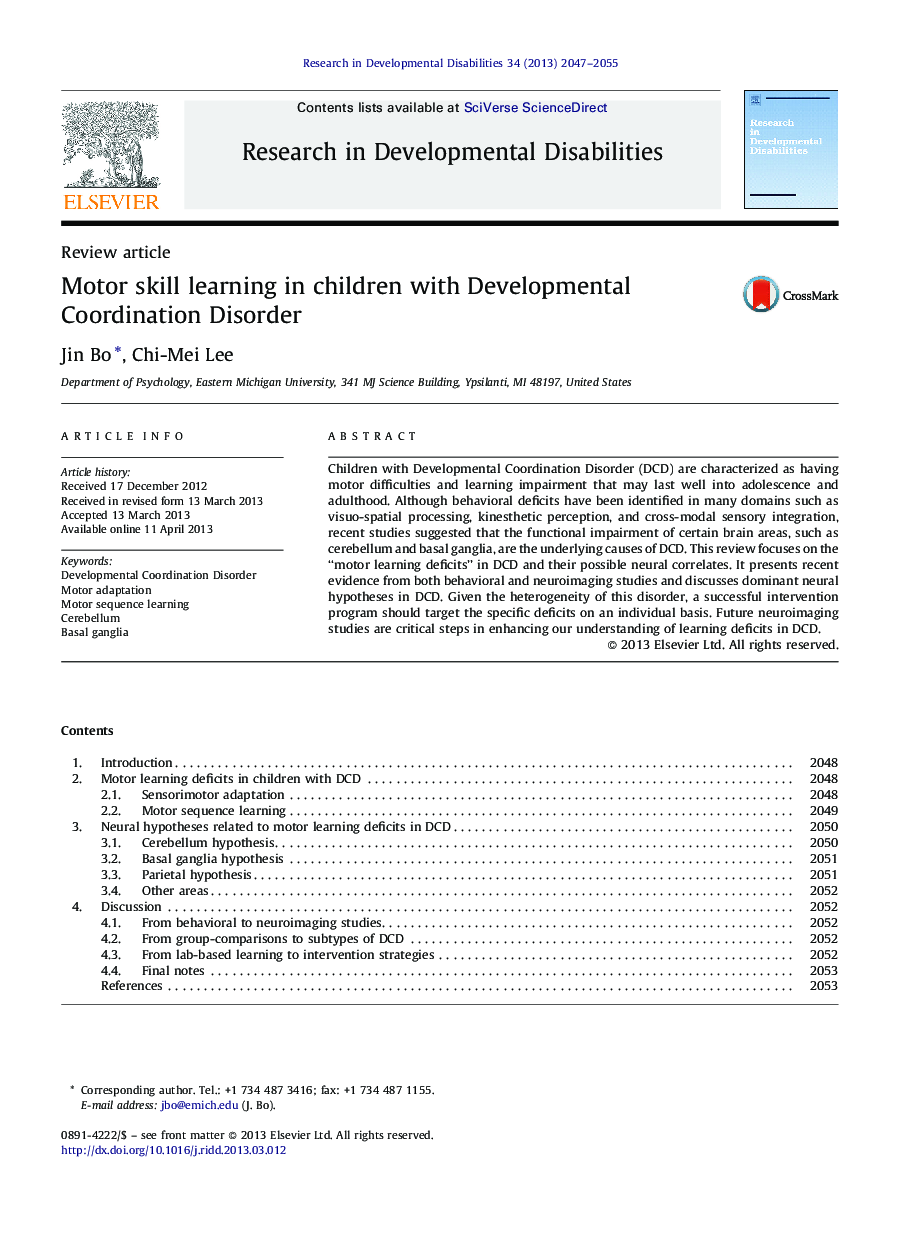| Article ID | Journal | Published Year | Pages | File Type |
|---|---|---|---|---|
| 371774 | Research in Developmental Disabilities | 2013 | 9 Pages |
•Children with DCD show learning deficits in visuomotor adaptation and motor sequence learning tasks.•Poor motor performance in children with DCD may be attributed to disrupted brain function.•The cortical–cerebellar, cortico-striatal, and frontal–parietal networks have been proposed to be related to DCD.•Future neuroimaging studies are very critical in enhancing our knowledge of the neural specificity of learning deficits in DCD.•Understanding of the neural specificity of an individual child with DCD is the key for successful evaluation, diagnosis, and intervention.
Children with Developmental Coordination Disorder (DCD) are characterized as having motor difficulties and learning impairment that may last well into adolescence and adulthood. Although behavioral deficits have been identified in many domains such as visuo-spatial processing, kinesthetic perception, and cross-modal sensory integration, recent studies suggested that the functional impairment of certain brain areas, such as cerebellum and basal ganglia, are the underlying causes of DCD. This review focuses on the “motor learning deficits” in DCD and their possible neural correlates. It presents recent evidence from both behavioral and neuroimaging studies and discusses dominant neural hypotheses in DCD. Given the heterogeneity of this disorder, a successful intervention program should target the specific deficits on an individual basis. Future neuroimaging studies are critical steps in enhancing our understanding of learning deficits in DCD.
